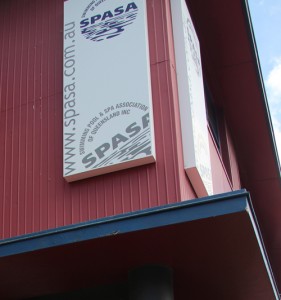SPASA Queensland report urges shift to an open and inclusive culture


The SPASA Queensland finance committee has released its report, strongly recommending the organisation become more inclusive and urging a change of mindset in the organisation.
To assist with this, a meeting has been set for May 31 at the Newstead office to discuss the recommendations; further meetings will be held on the Gold Coast, in Cairns and on the Sunshine Coast.
“We want demonstrate that we’re being open and transparent and that the members have the opportunity to provide their feedback on the directions of the association going forward,” says CEO Adrian Hart.
“I congratulate the members who’ve given substantial amounts of their personal time for this detailed review and for their careful consideration of the issues put forward,” he says.
“I think there will still be some people at the meeting who will want further detail, because there are other matters being considered and waiting for legal advice, and we’ll address those issues as they come up.”
Hart says that people have been worried about the reputational damage to SPASA but that the successful resolution of these issues will mean any damage will be short-lived.
“If you have a problem and resolve it and prove that consumers are being looked after, then it’s not going to be something that’s long lasting.
“People have raised concerns about whether customers are being looked after, and I can say they have. All customer claims have been dealt with within the Watertight benefit terms. Not one consumer has been turned away and there are now adequate funds with the sale of the building. Consumers should be comfortable dealing with a SPASA member.”
The finance committee
The finance committee comprised Phil Dufty, Finance Committee Chairman and SPASA Treasurer; Rod Webb, SPASA President; Des Evans, SPASA Deputy President; Steven Fitch, SPASA Supplier Member; Brandon Appleton, SPASA Builder Member; and Andrew Jakovac, SPASA Brisbane Sector Coordinator.
The committee was formed to investigate a range of issues, especially the grants disbursed out of the Watertight Trust Fund; the association’s liability to the National Swimming Pool Institute (NSPI); whether grants from the fund could/should be converted to loans; and the authority given for grants to be paid out of the fund. As the process was underway, the scope was expanded to include other quasi-financial and core association issues.
The committee says the report is intentionally candid, open and transparent, and admits that some members may think it is too candid. However, the committee believed it necessary to set the highest standard of openness and transparency for the ongoing health of the association.
They also believe that the current crisis might spur on genuine change that might not otherwise have occurred.
Key points
Some of the key recommendations are that SPASA:
• Show a real and tangible commitment to the inclusiveness of members and stakeholders to counter the previous regrettable reputation of failing to take members’ suggestions or criticism seriously.
• Address issues causing disunity amongst members. While some of the reasons for disunity were valid (as contained and addressed in the report), the disunity amongst membership cannot continue if the association is to prosper.
• Have a genuine commitment to transparency, with particular reference to where and how advertising monies are spent by the association, availability of trust fund finances, the association’s policy of responding to customer requests for builder recommendations, and clarity about which members are put forward to complete Watertight warranty work.
• Re-assess the association’s mission and purpose, and develop a renewed mission and purpose statement with a focus on customer satisfaction and industry integrity at all industry levels to assist the association in addressing direction and finances into the future.
• Conduct a review of elements of the association’s rules and make changes as necessary.
• Asses fee structures to help sustainably grow the association. In particular, look at simplifying the fee structure; consider a lower flat-fee for builders, or a more simplistic tiered fee; consider a fee-per-pool solution; consider a transparent and regionally based advertising budget; consider membership-driven advertising expenditure; and explore ways that the association can rely predominantly on membership fees as the primary source of income.
• Review membership criteria for builders and explore the merits (or lack thereof) of loosening the criteria for builder membership; and identify ways to make membership more relevant to non-traditional areas such as pool shops, retailers and pool safety inspectors.
What happened to the finances?
The committee also reported on the situation with the discrepancies in the Watertight Fund, making several important points.
• The committee clearly established that the Watertight Fund is able to fulfil anticipated claims, and equity in the Newstead premises assures beneficiaries of the fund of its ability to do so.
• The fund was entitled to invest monies, but not to make grants. Grants were made, and based on advice received these may not have been permitted under the trust’s rules. The grants were provided from the fund to support the operations of NSPI.
• The committee recommends the management committee require regular and transparent updates of the trust fund’s financials so that the management committee and members can be formally and completely aware of state of the Watertight Fund.
• The committee recommends the management committee review the current process for determining the administration and management fees and the expenses incurred by the Watertight Fund, assess if they are appropriate and fair and to minimise the fund’s expense-to-income ratio if there is opportunity to do so; while maintaining appropriately high standards of service to the fund’s beneficiaries.
• SPASA had been living beyond its means because of the lower revenues, due to the industry downturn. Since late last year the incoming CEO has been mindful of reducing costs and where possible increasing revenues, and the committee recommends that efforts be continued to firstly slash costs and secondly explore opportunities for growth in a very real way.
• It is important to note that investigations so far have not found any personal benefit to any individual whatsoever, and it seems that all funds are accounted for. While not beyond question, it is possible that any funds directed towards unauthorised purposes may in fact return to the Watertight Fund.
• The committee says it is extremely important to note that SPASA is and has been solvent throughout these investigations and restructuring, and has received legal advice that this is the case.
• The committee recommends the mothballing of NSPI in the short to medium term, and re-assessing NSPI’s use and viability at a point in the future when it warrants the association’s attention and energy. At that time the management committee should consider the commercialisation of NSPI including student subsidy approval, realigned focus on external industries including the general construction, civil and mining sector, and the development/registration of the “Standard 11” induction program for the mining sector.
• A favourable offer has been made and accepted on the Newstead property and the premises is currently under contract and within its 14-day due diligence period. The sale of the building will provide considerable breathing space in terms of the association’s day-to-day expenditure (e.g. extinguishment of the loan, cessation of loan repayments etc.), and liquid funds will become immediately available to the Watertight Fund if the need to pay claims arises.
• It was resolved to reduce the size of the office space and costs associated with it, rather than reducing the level of service that the association provides to its stakeholders; including consumers and members. Rental space at approximately half the current size is being sought in a similar geographic area.
• Of particular note is the current CEO’s extraordinary and selfless commitment to be temporarily paid at half-salary since early this year, in order to assist the association’s belt-tightening through the rationalisation process. This selfless commitment was formally recognised by the finance committee, and they thanked the CEO for his unfettered commitment to doing absolutely everything in his power to assist in the association’s longevity. The salary cut is part of a cash flow initiative while funds are tight, with the intention that his full salary will be resumed and back-pay paid when times improve.
• The committee also recognised the immense amount of unpaid hours of all staff and volunteers throughout this rationalisation process.
SPASA Queensland members interested in attending the meeting should RSVP by Tuesday 29th May 2012 to Danica on (07) 3252 6777 or by email at [email protected].




